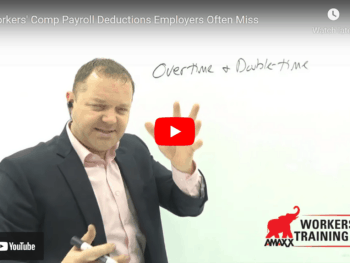In spite of economic conditions, the workers' compensation marketplace remains remarkably stable and not significantly changed from a year ago. There are, however, key factors on the horizon that could negatively impact the profitability and future prognosis for the line. Evidence of the line's steadiness can be found in the 2008 preliminary calendar year combined ratio. The National Council of Compensation Insurers (NCCI) advises it remained level with that of 2007 at 101 percent. And there are other relatively positive indicators for the line. Lost time claim frequency continues its downward spiral, dropping another 4 percent from 2007 to 2008. The depopulation of the residual market persists unabated. Between 2004 and 2008, premium in NCCI-serviced residual markets dropped 50 percent. But for all the positive factors, there are also negative indicators, as well as a few unknowns that could impact the future performance of the line. Medical claim costs continue to escalate, outpacing inflation. Low investment returns on insurer portfolios persevere as a consequence of the current economic conditions, offering insurers no relief in offsetting underwriting losses. Insurers won't be able to continue relying on streamlining and consolidating operations to help compensate for underwriting losses and lack of investment income. Without a few excellent years with low losses, insurers will likely be forced to increase rates. Certain to impact the profitability of the line are recent developments in California. A pair of judicial decisions issued this year has breached the enforceability of the permanent disability provisions of the 2004 California reform legislation. These actions, coupled with the ruling by the California insurance commissioner to deny a pure premium rate increase effective July 1, 2009, will undoubtedly increase costs and affect insurer viability. A new issue on the workers' compensation landscape that can be expected to drive up costs is compliance with the Medicare set-asides reporting requirements contained in Section 111 of the Medicare, Medicaid, and the State Children's Health Insurance Program (SCHIP) Extension Act of 2007. Additional expenses will be incurred by insurers and TPAs in implementing systems to identify and report workers' compensation claims eligible for Medicare set-asides. At this juncture, the current market appears to be fairly balanced. A firming market exists in the minds of incumbent insurers, but the reality is that there are still reductions available on accounts where loss experience warrants it or competition exists. Due to the economic downturn, an organization's financials rank alongside its loss history as the key elements to a successful renewal. However, underwriters remain concerned about the aggregation of employees fueled by the ongoing terrorist threat and the potential posed by an outbreak of pandemic disease. As to pricing, generally accounts with good loss experience and financials are seeing premium reductions in the range of 10-15 percent on a stable exposure base. The market remains fairly competitive, even for accounts with average losses and/or financials. Those accounts with significant losses and/or a poor financial condition should not expect pricing concessions, and may actually see premium increases in the current market. (workersxzcompxzkit) With the market on a seemingly steady course, what can an employer do to prepare for renewal and maximize savings? Take ownership of the renewal process, and partner with the broker to prepare a comprehensive marketing submission. Provide underwriters with details of your efforts to reduce the frequency and cost of claims. If there are significant claims, request a file audit on open claims well in advance of renewal. For organizations with programs involving collateral, be ready for increased financial demands from insurers driven by current economic conditions. Finally, since incumbent insurers in this market are working very hard to retain accounts, ask for firm renewal terms early. This will allow the time needed to determine if quotes for coverage should be sought from alternate insurers. Reprinted with permission from the October 2009 Executive Briefing issued to subscribers to IRMI Workers' Comp. Copyright 2009, International Risk Management Institute, Inc. Enjoy a 10% discount off the price of IRMI Workers' Comp by using Discount Code WC8 when your order online from IRMI. FREE "FRAUD PREVENTION" AUDIO PODCAST click here: http://www.workerscompkit.com/gallagher/mp3 By: Anthony Van Gorp, private investigator with 25 years experience.
Do not use this information without independent verification. All state laws vary. You should consult with your insurance broker or agent about workers' compensation insurance issues. ©2009 Amaxx Risk Solutions, Inc. All rights reserved under International Copyright Law. If you would like permission to reprint this material, contact Info@WorkersCompKit.com

























